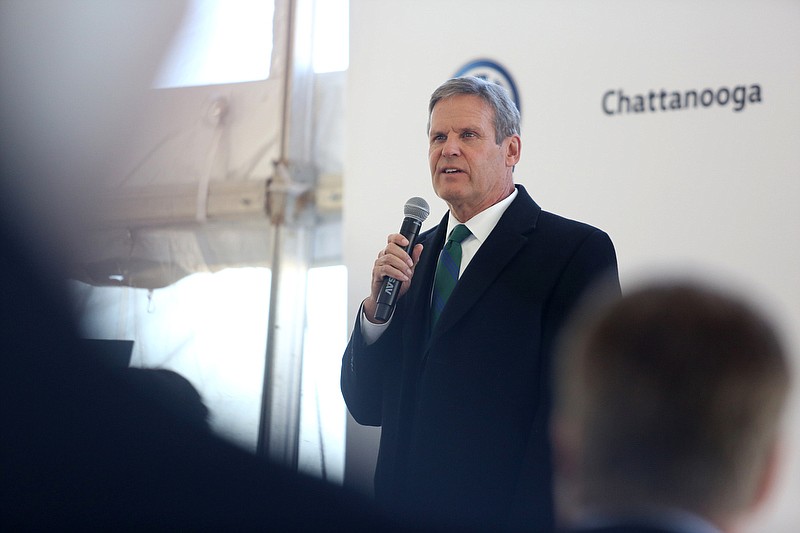NASHVILLE - Tennessee Gov. Bill Lee's administration on Wednesday formally filed with the Trump administration an ambitious and controversial block-grant funding proposal aimed at transforming the state's TennCare Medicaid program and freeing it from many federal rules.
It's the first such formal request to be made in the U.S. to the federal Centers for Medicare and Medicaid Services. The Trump administration has welcomed such requests.
"We're very encouraged," the Republican governor told reporters shortly before the state submitted its proposal. "We know that it will be good for Tennessee. The federal government knows that if more states do this it will be good for the costs of health care in the nation."
In an attempt to placate many TennCare enrollees who fear the plan could allow the state to restrict coverage or bounce them off the program, the waiver specifically states that while Tennessee "would be permitted to make enhancements to its benefits package without seeking additional CMS approval, the state would not be permitted to use this authority to make reductions to its benefits package."
That's been a huge issue among a number of TennCare's 1.4 million enrollees as well as advocates for the low-income children, their parents or caretakers, some disabled groups and some elderly Tennesseans. During the state's public comment period, some 1,800 individuals and groups in public hearings, including one in Chattanooga, or in written comments almost universally condemned the proposal.
Lee wants freedom to use $7.85 billion of the federal government's contribution to the total $12.1 billion program to make it more efficient, cost effective and, he says, improve services. Several categories of TennCare enrollees such as low-come seniors eligible for both Medicare and Medicaid are excluded from the waiver.
Federal dollars now flow into the state's program based on how many people are enrolled. And the per-person aid, which is pegged to inflation, helps in times of recession or disaster. While block grants are traditionally an annual lump-sum payment regardless of population growth, Lee is seeking a modified approach where money would continue to flow in at a per-person rate and be adjusted for inflation. More people could come onto the program, as well.
The governor is also making a major ask in the form of a request for a 50/50 split with the federal government on money that TennCare, a managed care program, already saves the federal government annually. The Lee administration estimates that at $2 billion annually. Lee wants to get up to $1 billion to improve health care and health generally.
At the same time, the governor is holding out the possibility that he could expand TennCare coverage to some of the estimated 300,000 adult men and women now uncovered in a state that has steadfastly refused to expand Medicaid coverage under the federal Affordable Care Act.
"We will invest in greater quality of care and greater services and potentially greater numbers of people that can be served in our Medicaid system," Lee said. "That's the crux of this plan."
Lee, who was directed to seek the waiver by fellow Republicans in the Legislature, also reiterated that he is willing to walk away from any deal if he doesn't think it will help Tennesseans.
As for why the Trump administration would be interested, Lee said, "First of all, they want to give individual states individual flexibility, because they know our situation in Tennessee is different from the Medicaid population situation in another state out west."
TennCare officials have already been working with their Centers for Medicare and Medicaid Services counterparts on aspects of the proposal. Wednesday's formal filing triggers a 30-day public comment period.
In September, U.S. House Energy and Commerce Chairman Frank Pallone, D-N.J., called efforts to block grant Medicaid funding "illegal," a view held by others. Advocates for the poor are expected to file legal challenges if the waiver is approved.
Contact Andy Sher at asher@timesfreepress.com or 615-255-0550.
